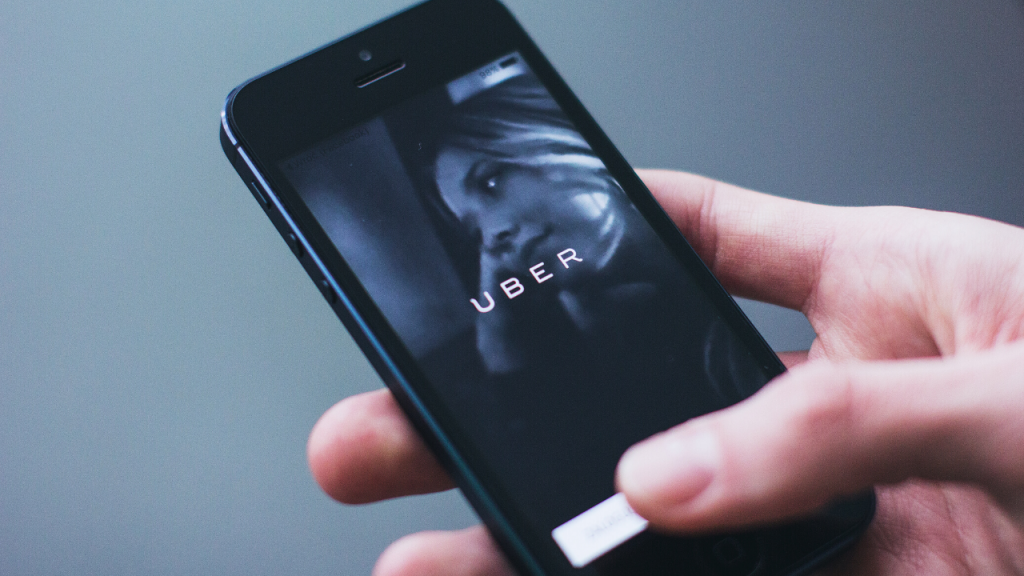- News
- Are You An Uber or Lyft Driver or Passenger? Here’s What you Need to Know To Protect Yourself Legally
Are You An Uber or Lyft Driver or Passenger? Here’s What you Need to Know To Protect Yourself Legally

Whether you’re a rideshare driver or passenger and you’ve been in an accident, learn what to do to protect yourself and win your car accident lawsuit despite tricky insurance companies.
Getting through a car accident lawsuit is no easy feat, and the last thing you want is to have regrets about what you should have known or done.
Before an accident happens, arm yourself with the right information about the one thing that can complicate your lawsuit the most: insurance. In this blog post, we will cover how Uber or Lyft drivers and passengers can protect themselves before and after an accident.
Plus, we will look at the truth about insurance companies and offer expert advice about how to win your car accident lawsuit — despite the challenges you might face with insurance companies.
Read on to learn:
- How to protect yourself as a driver or passenger with Uber or Lyft
- What to do if you’re hit in or by a rideshare vehicle
- The truth about how insurance companies interfere with your legal case
- Why skipping out on an ambulance after a rideshare accident can hurt your car accident case
Driving or Riding Rideshare? Here’s How To Protect Yourself
Over the last decade, the business of rideshare has boomed. But whether you’re a driver for Uber or Lyft or just a passenger, being properly prepared will help keep all parties involved safe in the case of a car accident.
Advice for Drivers
You have to be upfront with your insurance company and let them know you plan to drive your vehicle commercially.
Before even taking the wheel as a driver, you should confirm that your personal auto insurance and your insurance with the rideshare company are working together. Dishonesty won’t get you anywhere — your secondary rideshare insurance policy might get you off the hook for the cost of the accident, but don’t be surprised if you get dropped or even sued by your personal insurance company.
Advice For Passengers
One of the most important responsibilities you have is to wear your seatbelt. Far too often, riders neglect to fasten their seatbelts only for it to hurt their lawsuit following an accident.
Granted, seatbelts are only mandatory in the front seat; however, insurance lawyers have no issue asserting that you could have reduced your injuries by using a seatbelt.
When you sit in the backseat, not securing your safety can cost you significantly — even if you’re not at fault. “Since there’s no law, it’s just a straight comparative,” says Matt Bates, an attorney who has been with the Mike Morse Law Firm for 11 years. By not wearing a seatbelt, you basically give the jury the option to reduce your compensation. They might think: “Okay, well, since you didn’t wear your seatbelt, you should take 35 percent of your damages.” The point is: You’re only hurting yourself by not buckling up.
Advice For Drivers and Passengers
After a car accident, document every single thing to build your lawsuit once you’re safely away from the scene, like:
- Pictures and videos of the damages to all vehicles involved
- Pictures and videos of the arrival of police or emergency rescue
- Collections of your witnesses’ information
Don’t let this list limit you — no amount of information is too much. Gather everything you can because you never know what’s going to happen to it later on. The reality is that you hardly know the person behind the wheel of your rideshare service, and you can’t be sure of their qualifications or driving experience either. Covering your bases can make all the difference between winning and losing your car accident lawsuit.
Navigating Insurance Companies After a Rideshare Accident
After a rideshare accident, it’s very important for both drivers and passengers to get a medical check-up — it can make or break your case. Insurance companies’ favorite opening defense when you deny an ambulance ride after a car accident is to play that up and use it as evidence
that you were not that injured.
Plus, it’s possible your personal car insurance carrier covers the ambulance ride, so don’t let your worry of future bills let you overlook critical injuries that will most likely land you in the hospital anyway.
When you’ve got a serious injury — especially when you’re dealing with an insurance company — if you’re not getting it addressed, you’re not only hurting your body, you’re hurting your case and your ability to ultimately get paid.
Not knowing the truth about insurance companies can also hurt your ability to get paid. After you file a claim for a rideshare accident, you and your car accident attorney will likely go up against the Goliaths of the insurance world. Here’s what both riders and passengers should know:
- Insurance companies are businesses that love to take premiums but hate to write checks.
- They want to deter you from making claims. Some medical providers might even base their decision to treat you on your insurance carrier since some are more of a hassle than others.
- They aren’t above putting you under investigation, simply not paying out your claim, or even pairing you with in-network (and in-cahoots) doctors who are crooked and declare you healthy when you’re not.
When dealing with insurance companies during your car accident lawsuit, it’s in your best interest to listen to the experts that are taking care of you if you really want to have a successful lawsuit and outcome when dealing with your injuries — and that means both your attorneys and doctors.
Final Thoughts — Plus One More Tip
Obviously, getting into a rideshare accident is not an ideal situation, but they’re easier to navigate when you follow the right steps: Be properly insured as a rideshare driver, always wear your seatbelt in the backseat as a passenger, and whether you’re a passenger or a driver, take proper documentation of the car accident to help build your lawsuit.
Besides this, don’t forget that helping your car accident attorney is your sole responsibility as a client. To get the best possible result in your car accident lawsuit:
- Follow the direction of your doctors and car accident lawyer(s)
- Be honest with yourself and everyone else
- Work together with your lawyer to get you the best outcome possible
Keep this information in mind and you’ll be on your way to winning your lawsuit and being fairly compensated.
This article is based on an episode of Open Mike, my weekly podcast featuring key Detroit figures and other guests discussing the topics you care about – we’re going to tell you the truth about the law, your rights, and current events both here in Detroit and nationwide.
Subscribe today through your preferred app!
YouTube
Apple
Spotify
Google

Content checked by Mike Morse, personal injury attorney with Mike Morse Injury Law Firm. Mike Morse is the founder of Mike Morse Law Firm, the largest personal injury law firm in Michigan. Since being founded in 1995, Mike Morse Law Firm has grown to over 200 employees, served 40,000 clients, and collected more than $1.5 billion for victims of auto, truck and motorcycle accidents. The main office is in Southfield, MI but you can also find us in Detroit, Sterling Heights and many other locations.
















